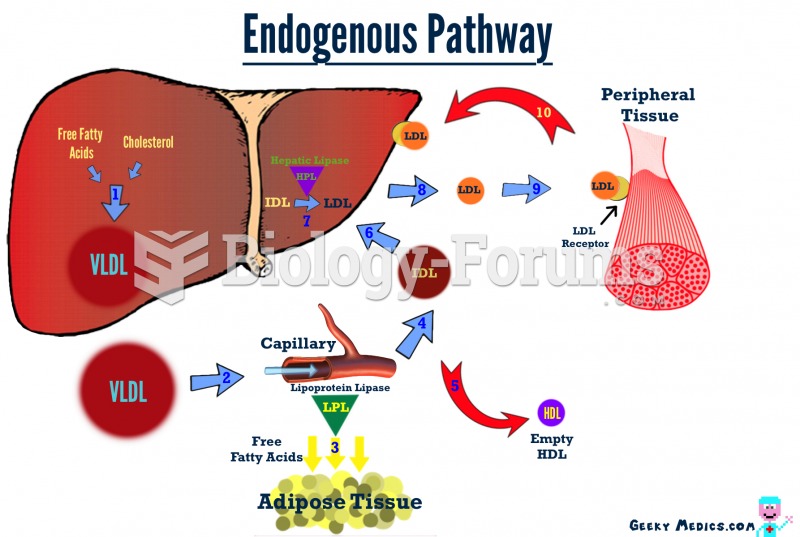|
|
|
Not getting enough sleep can greatly weaken the immune system. Lack of sleep makes you more likely to catch a cold, or more difficult to fight off an infection.
Hip fractures are the most serious consequences of osteoporosis. The incidence of hip fractures increases with each decade among patients in their 60s to patients in their 90s for both women and men of all populations. Men and women older than 80 years of age show the highest incidence of hip fractures.
The B-complex vitamins and vitamin C are not stored in the body and must be replaced each day.
Urine turns bright yellow if larger than normal amounts of certain substances are consumed; one of these substances is asparagus.
A good example of polar molecules can be understood when trying to make a cake. If water and oil are required, they will not mix together. If you put them into a measuring cup, the oil will rise to the top while the water remains on the bottom.
 Asthma. (a) A normal bronchiole. (b) An asthmatic bronchiole. During an asthma “attack,” the bronchi
Asthma. (a) A normal bronchiole. (b) An asthmatic bronchiole. During an asthma “attack,” the bronchi
 To reduce stress on your client’s neck when the head is turned, put a towel under the shoulder and ...
To reduce stress on your client’s neck when the head is turned, put a towel under the shoulder and ...





